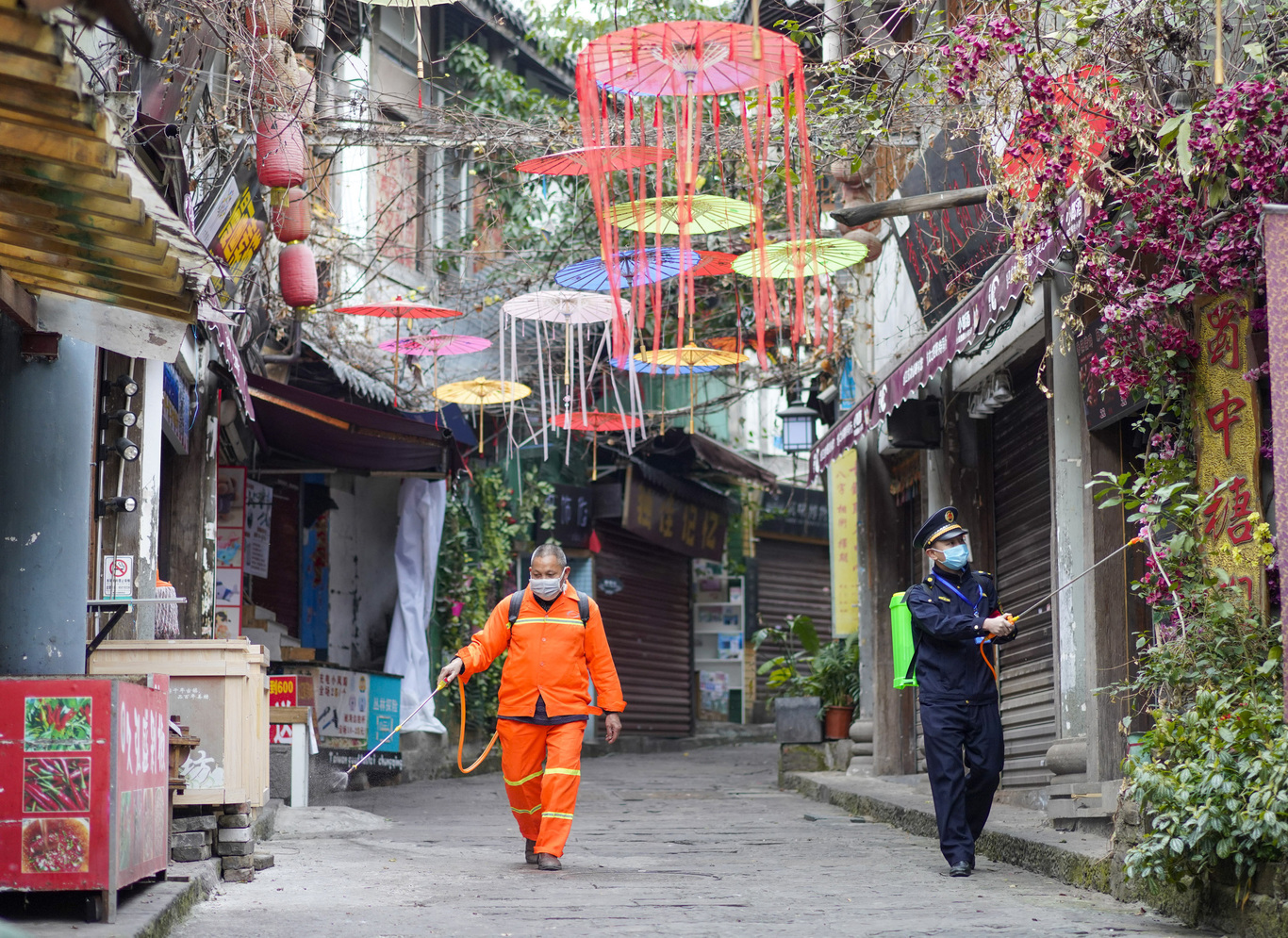Ireland should be braced for the economic impact of the coronavirus outbreak
Assessing the potential impact of COVID-19 on Irish businesses.
AS THE NUMBERS of infected people have grown and as China enacts stringent lockdown measures, the impacts of Covid-19 are beginning to be felt across a variety of industries.
It is not clear when manufacturing work will restart fully in China and lockdown measures vary from region to region.
The food sector
For Irish Businesses, one of the most immediate effects has been felt on short shelf-life food exports, where exporters have encountered difficulty in the transport and unloading of products. China accounted for 7% of Ireland’s food and drink exports in 2019.
While in value terms dairy and meat were the largest segments, the sub-sector with the highest percentage of food exports to China is fish. Shellfish, in particular, is affected as China and Hong Kong are significant markets for Irish oysters and crab.
Longer life products, such as milk powder, should not be particularly affected over the medium term.
While the volume of food consumption in China has not been affected, sectors with dependence on out of home eating are particularly vulnerable. From a food production point of view, the packaging shortages may well begin to impact if the shutdown continues into quarter two of this year.
Manufacturing
The coronavirus has already impacted on the Irish manufacturing sector.
High precision, high-value products and just-in-time supply chains have been affected due to minimum stock holding, while plastics manufacturers are concerned about ongoing delays to product development and manufacturing as they import precision tooling from China.
Irish companies importing large heavy goods and low-value supplies, with a sea freight lead time of 6 weeks from China are still working through their stock levels, but we can anticipate a hit in supplies starting in early March.
Packaging materials and process consumables are already in short supply for some manufacturers.
Motor trade
When it comes to the motor trade, there is a risk to the automotive supply chain, although this should be balanced by the fact that around 60% of inventory is already in the market or sold at the end of January due to the seasonality of new car sales in Ireland.
Vehicle manufacturers not only halted production in China but also in Japan and South Korea, as component inventories fell.
Fiat Chrysler announced plans to halt operations at its factory in Serbia due to a lack of parts from China. The stoppage marks the first time a European carmaker has halted production at a plant in Europe due to the Coronavirus, with Toyota stating that it is monitoring the situation but there was no impact currently on any of its European operations.
Retail
The Covid-19 disruption could cause inflation in the supply chain should production be affected into quarter two.
It should be noted that Irish retailers are already investigating alternative options, analysing sales prices across each impacted line and assessing the sensitivity of consumer demand linked to sales price increases.
At present, the most notable impact on retail sales has primarily been linked to high-end designer brands and fashion labels, both internally in China and in locations such as New York, Paris and London.
This is linked to less discretionary spend within China, and also to reduced levels of Chinese tourists travelling to Europe and the US.
Hospitality
Although Tourism Ireland and Fáilte Ireland have highlighted the potential of the Chinese market for the last few years, the wider “Asian” market still represents less than 3% of inbound travel to Ireland; as such the Coronavirus outbreak is unlikely to materially impact on Irish tourism performance during 2020.
Nevertheless, the outbreak could disrupt the supply of some hotel offerings and force operators to source for alternatives.
What now?
From an import point of view, manufacturers and retailers should start to assess their supply chain for exposure to the impacts of COVID -19. Alternative suppliers outside of Southeast Asia should start to be identified and assessed.
From an export perspective, the disruption in the supply chain may cause producers and exporters of longer life product to temporarily increase their stock levels; they should assess the cash flow and working capital impact of this on their business.
Companies with short shelf-life products should consider alternative market places at least for the next quarter.
All companies exporting to China should review their contractual terms and insurances to ensure that they are not unnecessarily exposed to risk should there be delays on final
delivery to the customer.
June Butler is head of sectors at Bank of Ireland
Get our Daily Briefing with the morning’s most important headlines for innovative Irish businesses.






